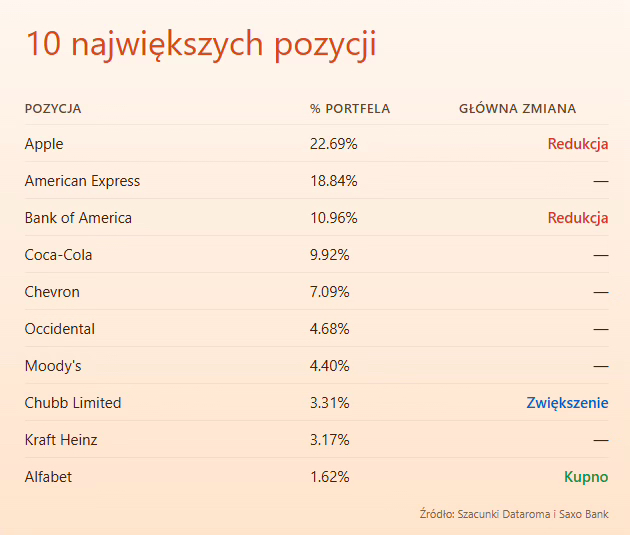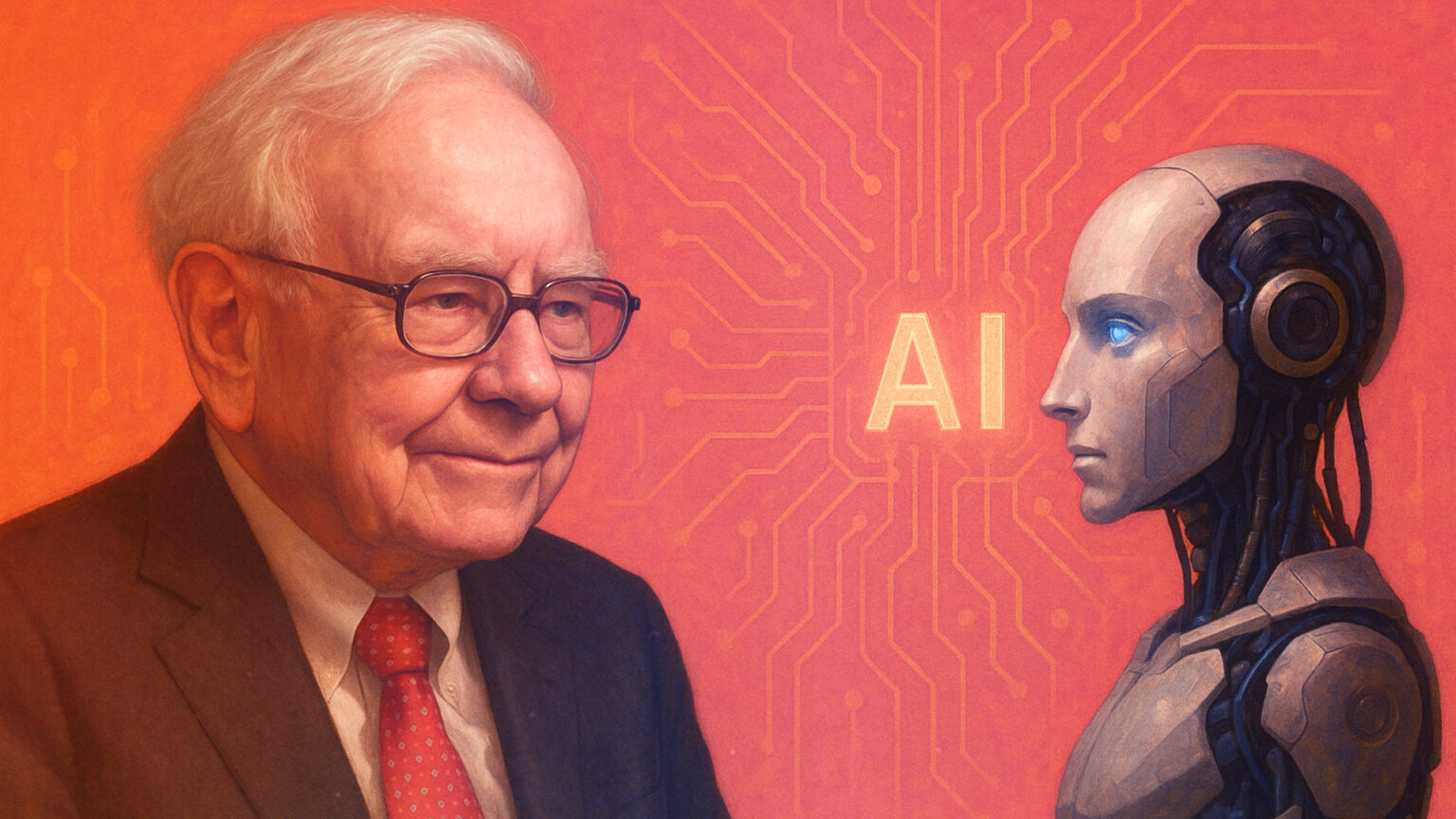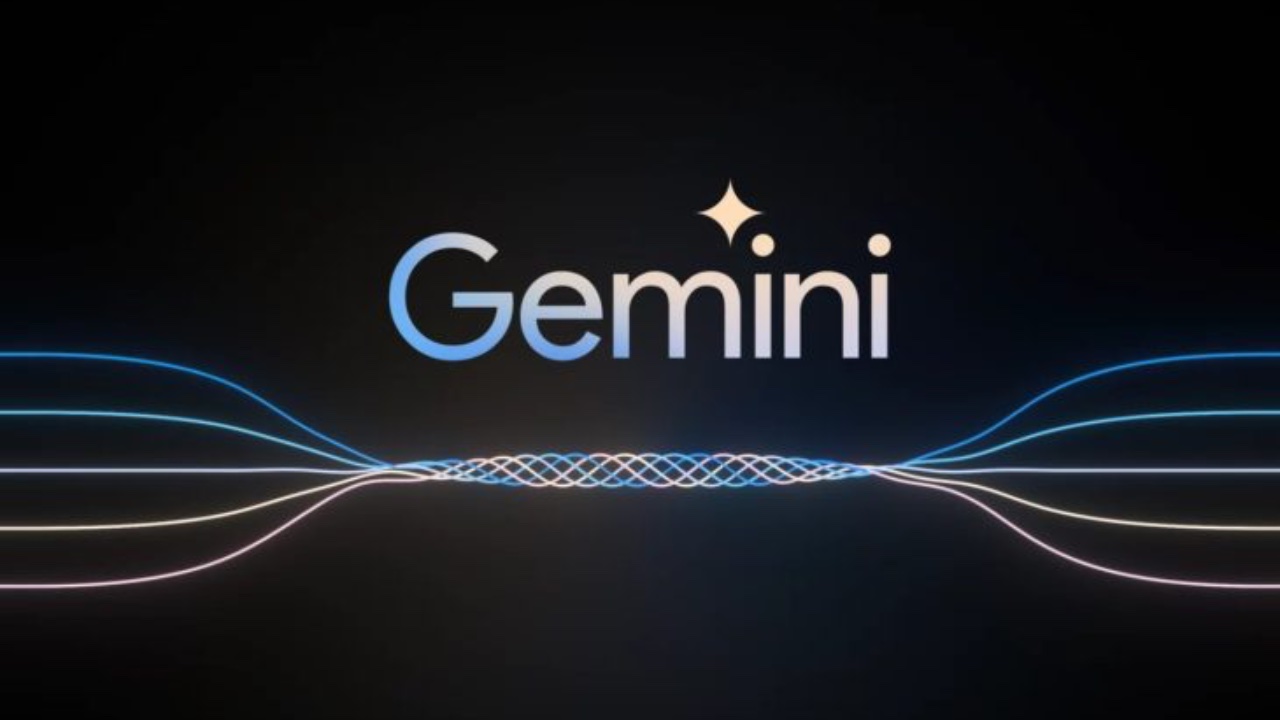Ruben Dalfovo, Investment Strategist at Saxo, writes in an analysis that for years Warren Buffett’s history with Google was a cautionary tale. He openly admitted that not buying their shares was a serious mistake, even though he saw the company turning internet search into a tool to monetise advertising. Now, just months before handing over the helm to Greg Abel, Berkshire Hathaway has quietly bought a stake worth billions of dollars in Google‘s parent company, Alphabet.
Alphabet’s Class C shares closed the 17 November session at $285.60, up 3.11% on the day, after reports of a new package helped push the stock to record levels. The stock is up around 50% since the start of 2025 and is the best among the so-called Magnificent Seven this year. When an investor known for avoiding following fashionable trends buys shares in a market leader whose price is approaching historic highs, the obvious question arises: what does he see that the rest of us might not?
From Apple to Alphabet
Berkshire has been a net seller of equities for twelve consecutive quarters, including the last. In that time, it has sold about $12.5bn of securities while buying about $6.4bn of shares, while allowing its cash holdings to grow to a record $381.7bn. This is not the behaviour of a man who thinks everything is cheap. However, there has been a major reshuffling within this overall reduction.
In the past quarter, Berkshire reduced its stake in Apple by around 15% and its position in Bank of America by around 6%. Alphabet, meanwhile, emerges as a new player in the top ten club. Regulatory documents and portfolio statements show that the holding now ranks roughly tenth in Berkshire’s equity portfolio, behind such classics as American Express, CocaCola and Chevron. This is a rare situation in the technology industry for a conglomerate that for decades has held shares in railways, insurers and basic goods companies, rather than fast-growing software giants.
What has changed, however, is not so much Buffett’s principles as the companies themselves. Apple, which he has always described as a consumer brand, now operates in a world where hardware upgrades rely heavily on AI-based features. At the same time, Alphabet is looking less and less like a speculative technology company and more like a sprawling infrastructure for the digital economy, with advertising and cloud revenues that are surprisingly stable for something built from lines of code.

Alphabet as AI infrastructure, not a gadget story
Alphabet is at the point where its artificial intelligence ambitions meet traditional cash generation. In the third quarter of 2025, the company reported around $102bn in revenue, above forecasts, and profits also beat expectations. The main driver of growth has been Google Cloud, which has evolved from a ‘nice-to-have’ into a business driver as companies developing AI rent its computing power.
In addition, Gemini models and AI-enhanced search reach hundreds of millions of users today. These tools run on a global network of data centres, proprietary chips and fibre optics, the expansion of which this year will consume a total of more than $90 billion in capital expenditure. Put simply: Alphabet wants to provide the ‘shovels and picks’ for the gold rush around AI.
The partnership with Anthropic adds another dimension. Google has invested billions in the startup and has entered into a major chip supply and cloud services agreement, which should direct future computing workloads to the Google Cloud. Berkshire’s package gives the company indirect exposure to this ecosystem: every Anthropic query run on Google’s infrastructure strengthens Alphabet’s position as an AI infrastructure.
The key point is that this expansion is based on a strong balance sheet. Alphabet is valued at around 25 times expected earnings, cheaper than some other megacaps, and continues to generate solid free cash flow from the search engine and from YouTube. This cash can fund data centres and still support share buybacks, which suits investors who prefer ‘great companies at fair prices’.
What does the ‘vote of confidence’ from Buffett really mean?
Buffett’s purchase of Alphabet is more than a simple seal of approval. It’s a concrete thesis about where AI profits will be concentrated. Alphabet makes its money from search ads, YouTube, maps, the app shop and the cloud. AI is not a separate product here. It is an enhancement that can increase user engagement and monetisation opportunities in existing businesses.
It is also a clear shift towards infrastructure rather than devices. Apple is betting on on-device intelligence, but is yet to refine its AI business model. Alphabet is already monetising AI through cloud contracts, advertising tools and office software. Reducing its position in Apple while increasing its stake in Alphabet suggests that Berkshire sees more future value of AI in data centres and platforms than in handset replacement cycles.
Finally, it is important to remember that ‘technology’ is not a single category. Alphabet may share the index with fast-growing artificial intelligence start-ups, but its competitive advantage, cash-generating ability and diversified revenues place it closer to companies that have consistently multiplied capital over the years, exactly the kind of companies Buffett has always favoured.
Risks that even Berkshire cannot ignore
The risks are real. Alphabet could over-invest in AI computing capacity if customers slow down projects or competitors snatch up big contracts. Google Cloud’s growth rate, margins and long-term investment guidelines are worth watching. The second threat remains regulation. Tougher antitrust or privacy laws in the US and Europe could hit search and advertising profitability or force changes in how data is used.
AI strategy execution will also be key. Alphabet stumbled at the start of the race for generative AI and is still playing catch-up, trying to regain the initiative with Gemini and other models. If users or corporate customers prefer the tools of the competition, all this spending on chips and data centres could result in lower-than-expected returns, even despite Buffett’s presence in the shareholding.
Closing the buckle: what Buffett’s bet on Alphabet really teaches
Buffett has said for years that not buying Google shares was one of his big mistakes. Alphabet was up for grabs, with search engine profits and solid cash flow, while he remained on the sidelines. By buying the shares, now that he is preparing to hand over as CEO, he is doing more than just a ‘neat final move’. It’s a discreet signal of what he thinks sustainable value in AI will look like.
For ordinary investors, the conclusion is not ‘buy what Buffett is buying’. The point is that even the most traditional value investor is happy to have exposure to AI – as long as it is built into a diversified platform generating strong cash flows that can be understood and rationally justified. The market will continue to argue whether Alphabet’s price is too high, too low or just right. A better question is one that Buffett has been asking for seven decades: which companies can you hold in good times and bad because you understand how they make money and why they can survive?
– Artificial intelligence remains one of the fastest growing market segments, while being distinguished by high volatility, risk of overheating and intense competition. The sector often reacts with rapid valuation movements, and the dynamics of innovation mean that market positions of leaders can change rapidly. Investing in stable assets outside the AI sector helps to keep a portfolio balanced, even when sentiment towards innovation declines. Therefore, in the long term, it is important to ensure portfolio diversification, e.g. by combining a bold approach to new technologies with sound and disciplined risk management, says Aleksander Mrózek, CEE key account relationship manager at Saxo Bank.












